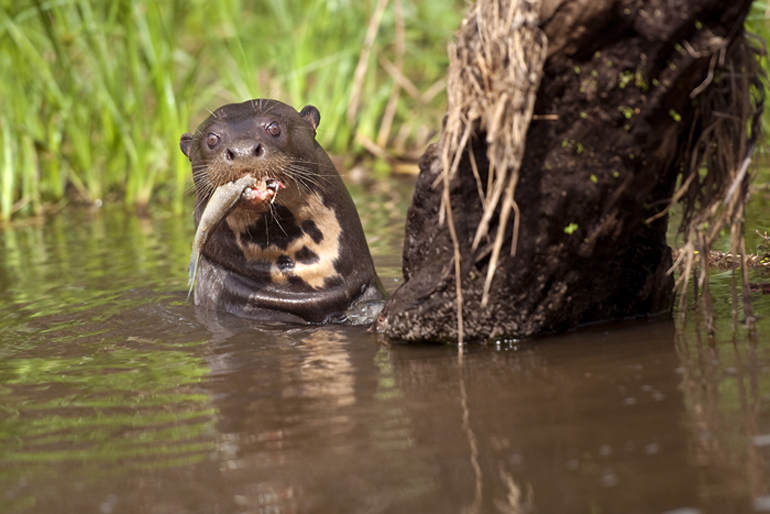
Eons ago , when the South American continent was joined to Africa, the Pantanal must have been a part of original Eden. Biodiversity is stunning, even today, after 200 years of nature in the crosshairs. The world's attention has only recently been focused on this war on wildlife. It was none too soon.
Commercial hunting for wildlife was outlawed in Brazil in 1987, but very little changed as a result. The law was "on paper" but nowhere else. Enforcement required tax dollars, and that, of course, went to pay corrupt officials to not enforce the law. After all this is Latin America. When poachers discovered caiman by the zillions in the Pantanal, a "crocodile rush" was on, for skins, of course. Some have estimated that a million were shot every year in the eighties to supply the worldwide market for fashion accessories.
Hunters stalked the sloughs by night, with lights, to reveal the distincive eyeshine. Then bam, right between the eyes. No sporting chance. After all this was a war for money. The following day the carcasses were skinned and salted. It was win-win, for poachers in the Pantanal and merchants in New York and London. And don't forget the vultures. The stench of rotten meat hung over the swamp like a shroud.
And these poachers were not picky. They killed anything they could sell. The mass trade in crocodile skins was supplemented by more exotic, and rare, wildlife-jaguars, ocelot, otters, anaconda-that could not stand up to an army of poachers. But not to worry. There would be another spin-off. The exotic pet trade. Thousands of macaws were taken from the Pantanal each year and put into tiny cages around the world so their "owners" could teach them to talk. Most mercifully died before they learned the first word. (next photo)